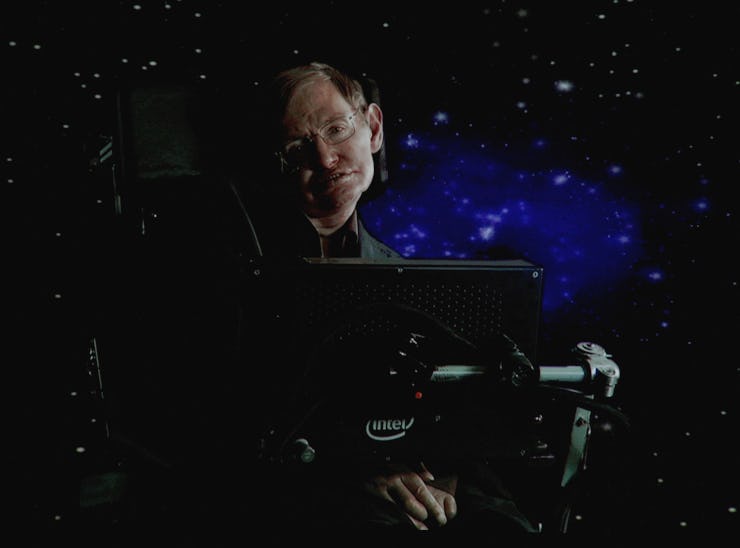Remember the ice bucket challenge? The meme of 2014 brought a splash (ha) of attention to amyotrophic lateral sclerosis, also known as ALS, the neurodegenerative disease Stephen Hawking lives with along with some 450,000 other people around the world. The American ALS Association (ALSA) received an outpouring of donations, which directly led to the discovery of a gene that contributes to the disease.
Now, artificial intelligence is set to bring the next breakthrough in the fight against ALS — specifically regarding the development of drugs.
Jackie Hunter, CEO of BenevolentBio, said at the TechCrunch Disrupt conference on Tuesday in London that her company expects to make a difference for ALS patients in the next five years because of pharmaceuticals that could be developed based on the findings of artificial intelligence that scans the oceans of medical studies being published every day.
“No one scientist could actually absorb all that information,” Hunter said about the rate of publication for peer-reviewed papers about medical science. “The other problem is that it’s ‘messy data.’ What we’re using A.I. machine learning to do is to really tackle that problem of unstructured data, to pull together that data to present it to our scientists in ways to enable them to use their insight to use the most relevant pieces of information to come up with meaningful hypothesis for coming up with serious diseases.”
Hunter was asked about how BenevolentBio’s work is different from the world’s biggest technology companies also using A.I. to scan medical texts.
“I think one of our unique selling points is that we are really focused end-to-end on drug discovery and development,” Hunter said of what BenevolentBio is doing in comparison to the efforts of the likes of IBM, Google DeepMind, and Microsoft and their application of A.I. in cancer research.
Hunter preferred to call them companions instead of competitors in the market. She later said she was hopeful that BenevolentBio’s research would yield results in the coming years.
“I fervently believe that we will see something of benefit for ALS,” Hunter said. “I believe that some of the other disorders we are working on will make a difference to patients’ lives with Parkinson’s disease, potentially Alzheimer’s disease.”
Hunter speaking at TechCrunch Disrupt in London.
Hunter also said that work on motor neurone disease, as well as working on antimicrobial resistance, was part of the company’s agenda.
It sounds like analyzing existing data would throw up little extra discoveries, but on the ALS front, Hunter revealed that the company was able to identify five compounds that could work as ALS treatment — in lab studies, four of them worked as well as or better than existing treatments on an ALS cell taken from a patient. Four of the tested compounds were ones researchers had not considered trying.
Although the ice bucket challenge brought new attention to ALS, BenevolentBio’s efforts are separately funded. That doesn’t mean the ALSA’s resources won’t aid the company’s efforts in future, though. “We have been talking to the ALSA to see if there are ways we can collaborate although we have no formal collaboration in place at the moment,” Hunter told Inverse after her appearance.
